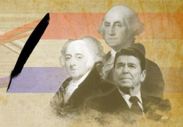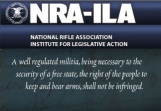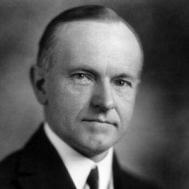Archive
Liberalism: An Autopsy
The heirs of the New Deal are down to 20% of the electorate.
By R. EMMETT TYRRELL JR.
In the tumultuous history of postwar American liberalism, there has been a slow but steady decline of which liberals have been steadfastly oblivious. The heirs of the New Deal are down to around 20% of the electorate, according to recent Gallup polls. Conservatives account for 42% of the vote, and in the recent election the independents, the second most numerous group at 29% of the electorate, broke the conservatives’ way. They were alarmed by the deficit. They will be alarmed for a long time.
Liberalism’s decline might appear, at first glance, to have begun with the 1961 inauguration of President John F. Kennedy—when historians noted the first glimmerings of what was to become liberalism’s distinctive trait, overreach. Kennedy’s soaring oratory was infectious and admirable and even impressed a later generation of conservatives. But it was a bit dishonest. There never was a missile gap with the Soviet Union, as he claimed, or any other cause for histrionics. On the domestic side, the oratory set in motion President Lyndon Johnson’s catastrophic War on Poverty.
JFK’s stirring language represented a break with the Burkean understanding of President Dwight Eisenhower. Ike, whether he articulated it or not, wanted to put the Great Depression and the dangerous confrontations of the early Cold War period behind us. He wanted to return to normalcy. Yet Kennedy’s inaugural put America on a different path, one that led to the Cuban missile crisis and ultimately to Vietnam. It fixed America’s stance in the world, and with that stance we were on the road to Iraq and Afghanistan. Domestically it set us on the path to a behemoth big government.
Still, in tracing liberalism’s decline, one cannot ignore an earlier event: the civil war that broke out in the aftermath of World War II. The conflict pitted what we might call the radicals led by Henry Wallace against the advocates of what Arthur M. Schlesinger Jr. would call in his book, “The Vital Center,” more practical liberals like Hubert Humphrey, Joseph L. Rauh and Walter Reuther. They were hard-headed and patriotic, and their desiderata were reasonable by comparison with the radicals’ utopian ideas about the Soviet Union.
The practical liberals won in the late 1940s, but in 1972 civil war broke out anew. This time the radicals won. In the meantime, LBJ’s Great Society caused even some liberals to warn against the “unintended consequences” of government programs. These were to be the first new recruits to modern conservatism. Jeane Kirkpatrick, Irving Kristol and, for a time, Daniel Patrick Moynihan, were in Kristol’s words liberals “who were mugged by reality.” The radicals were seeking refuge from reality in a self-regarding fantasy. Only a crisis in the leadership of President Richard Nixon, Watergate, allowed them to hide from the American electorate their fantastic delusions.
Conservatives have had Edmund Burke and the Founding Fathers as their cynosures. Sometimes they have provided discipline; sometimes conservatives have followed their own star. The problem for liberals is they have been denied a cynosure. Some had looked to the British Fabian Socialists and some to Karl Marx, but since the late 1940s liberals became coy about their intellectual mentors.
From the Nixon administration on, the numbers have not been good for liberals. In 1972 only one state went for presidential candidate George McGovern, who even lost the youth vote. In 1976 liberalism did better, but Jimmy Carter ran as a moderate.
Then came 1980. Ronald Reagan benefitted from the ongoing electoral accretions that modern conservatism has attracted: the neocons, the evangelicals (aka the Christian Right), the Reagan Democrats. Liberals could claim nothing new.
During his eight years in office, Reagan changed the political center for years to come. As the Old Cowboy headed back to California, the political center was center-right: vigilance about big government, balanced budgets, low taxes and peace through strength.
In 1992, after 12 years of conservatives in the White House, Bill Clinton beat George Herbert Walker Bush. Yet he too ran as a moderate. Once in office he tried to push a big government agenda and was trounced in the midterm election.
The rest of Clinton’s presidency was defined by his pronouncement that “The era of big government is over.” The Reagan revolution was secured. In 2000, Clinton’s vice president lost to the governor of Texas despite prosperity and peace. George W. Bush won the midterms in 2002. Then came the Republicans’ wilderness years in 2006 and 2008—but not conservatism’s. Conservatives remained more popular than liberals by about a 2-1 margin.
Conservatism has steadily spread through the country since its larval days in the 1950s, and the reason is that the vast majority of Americans favor free enterprise and personal liberty. Note the tea party movement. The Republicans just took the House of Representatives by over 60 seats and gained six seats in the Senate. The social democrat in the White House has been routed.
Over the past two years the Democrats showed their true colors. Faced with an entitlement crisis, they rang up trillion dollar deficits. We now face an entitlement crisis and a budget crisis—and liberals have no answer for it beyond tax and spend. They still have support in the media, but even here they are faced with opposition from Fox News, talk radio and the Internet.
As a political movement liberalism is dead. They do not have the numbers. They do not have the policies. They have 23 seats in the Senate to defend in 2012 (against the Republicans’ 10) and Republican control of state houses and legislatures will give them even more seats in the future. Liberalism R.I.P.
Mr. Tyrrell, a syndicated columnist, is editor in chief of The American Spectator. His current book is “After The Hangover: The Conservatives’ Road to Recovery,” published by Thomas Nelson.





















































